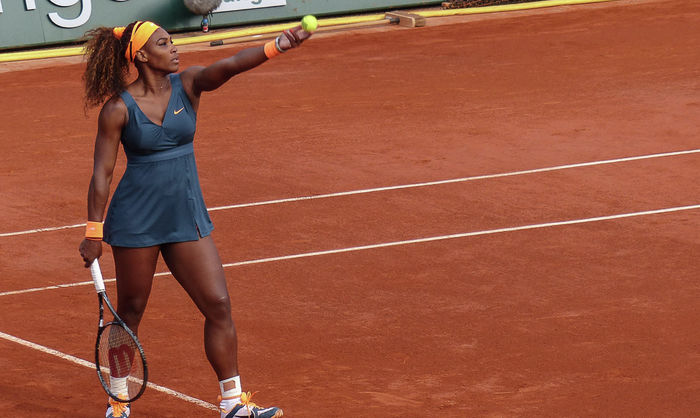Content Notice: This article contains brief discussion of racist abuse
Since the start of last week (01/11), one of England’s most historic sporting organisations, Yorkshire County Cricket Club, has been embroiled in accusations of “institutional racism” made by former player and Twenty20 captain Azeem Rafiq. Although Rafiq first spoke out back in September last year, Yorkshire came under heavy fire after initially announcing that no-one would face disciplinary action, with the club’s own findings dismissing racist abuse directed at Rafiq’s Pakistani heritage as “friendly and good-natured banter”. Rafiq later claimed that such abuse left him “close [...] to committing suicide”, further suggesting that he was made to feel like an outsider as a Muslim.
The injustices dealt toward Rafiq, however, have not come without cost. In response to the club’s utter negligence, kit supplier Nike and several of Yorkshire’s sponsors have either ended partnerships or said they would not continue deals; the England and Wales Cricket Board (ECB) has suspended Yorkshire from hosting international matches; whilst Yorkshire Chairman Roger Hutton, alongside three other board members, has resigned over the club’s response to racism. After nearly a year of investigations, resulting in no conclusive findings or direct disciplinary actions, UK Health Secretary Sajid Javid called for ‘heads to roll’. The responses of the club’s sponsors and the ECB have no doubt taken steps in the right direction, holding accountable an organisation that has undermined consistent accusations of racism and implemented little change in the wake of Rafiq’s allegations, but much more needs to be done than simply making heads roll.
“The sport of cricket remains wedded to an archaic culture that has inherently excluded minorities since early nineteenth-century Britain”
If you’ve lived in Britain for a while, there is more than a small chance you may be familiar with the term that was used to mock Rafiq’s Pakistani heritage. Yet, the very fact that it was dismissed as “banter” is frankly the tip of a rather perverse iceberg that belies many sporting institutions today. Rafiq was subject to repeated abuse throughout his time as a professional cricket player for Yorkshire, but guilt for these incidents shouldn’t just be laid at the feet of ex-teammates like Gary Ballance; organisations complicit in such disgusting acts, whilst simultaneously refusing to promote change, should bear the brunt of the blame.
To put things into perspective, Yorkshire Cricket is hardly a melting pot of diversity, having only fielded their first ethnic minority player in 1992, decades after other counties had done so. The original move was also met by opposition from some of its greatest players, such as Fred Trueman, who thought it was “stupid” to do so. But this lack of representation isn’t just isolated to Yorkshire. Whereas in the late 1980s there were several Black players in the England cricket team, now there is only Jofra Archer, who himself grew up and trained in Barbados. The fact that the number of Black players in county cricket has dropped by 75% since 1990, while the only British-Asian to have ever made the England test squad has been Moeen Ali, ultimately speaks volumes to the fact that the sport of cricket remains wedded to an archaic culture that has inherently excluded minorities since early nineteenth-century Britain.
“There needs to be lasting reform that alters the sporting experience [...] for players at the grassroots level, whose encounters with racism more often than not go unverified”
Yet narrowly focusing our attention on individuals and singular cases of abuse achieves nothing more than to paint a false narrative that suggests racism has been rooted out and ‘equality’ is on the cards - this myopic fairy tale is misleading, wrong, and outright damaging. Resignations and counter-accusations highlight the extent to which these institutions have been unrelenting in their refusal to adapt to cultural shifts and systemic challenges. Nike and the ECB’s actions are clearly positive signs that racism can and will be taken seriously, but beyond the outward facade of ‘diversity and inclusion’ there needs to be lasting reform that alters the sporting experience not just for professional athletes but equally for players at the grassroots level, whose encounters with racism more often than not go unverified.
Rafiq went on to explain how his decision to call out racist abuse led to him becoming an outcast in the team: “But when I finally did [say something] I was immediately isolated. I was made to feel like I was the one who had done something wrong”. The statements of reflection and apology that have circulated over the last week from both teammates and Yorkshire officials are not worth the paper they’re written on, without the intent of meaningful reform. As banal as advocating for ‘systemic change’ may seem, it nevertheless conveys the extent to which so many sporting bodies are stuck in antiquated ways of thinking that fail to take notice of institutionalised forms of racism.
From athletes to coaches, physios to chairmen, it’s time that diversity and inclusion is genuinely taken seriously in a sport that is in much need of change. Boundaries need to be broken for sport to be made all the more inclusive, and this must be recognised by those in positions of authority who have remained imperceptive to the damage inflicted by incessant discrimination.
Elsewhere, English football has been under similar pressure to tackle rising discrimination, with research from Birmingham City University revealing that abuse has increased significantly at the grassroots level this year. Professor of criminology Imran Awan stated that the “scope of this problem is being hidden because victims are afraid to speak out”. Indeed, in a sport where only 0.3% of players from South Asian backgrounds are represented at the professional level despite forming 7.5% of the UK population, problems clearly exist beyond English cricket and its historic penchant for lack of representation. Notable campaigns such as Kick It Out and No Room for Racism in the Premier League, although necessary and positive, are ultimately failing to address discrimination where it is arguably most critical: at the level of young, aspiring athletes looking to break into a sport that seems to be out of step with them on a cultural level.
Azeem Rafiq’s harrowing experiences have served to refocus our attention on the deeply entrenched discrimination that festers below the surface of larger, isolated events that make it to the media. As much as racism in sport can affect one’s viewing experience, it can also deter individuals from participating in sports in the first place. Rafiq is hardly alone in his hardship, which makes it imperative to take seriously the institutionalised forms of racist abuse that impinge on the principle of equality in sport, shining a light on those experiences that so many have been reluctant to reveal out of fear they may be dismissed, ostracised, or even subjected to further abuse.


